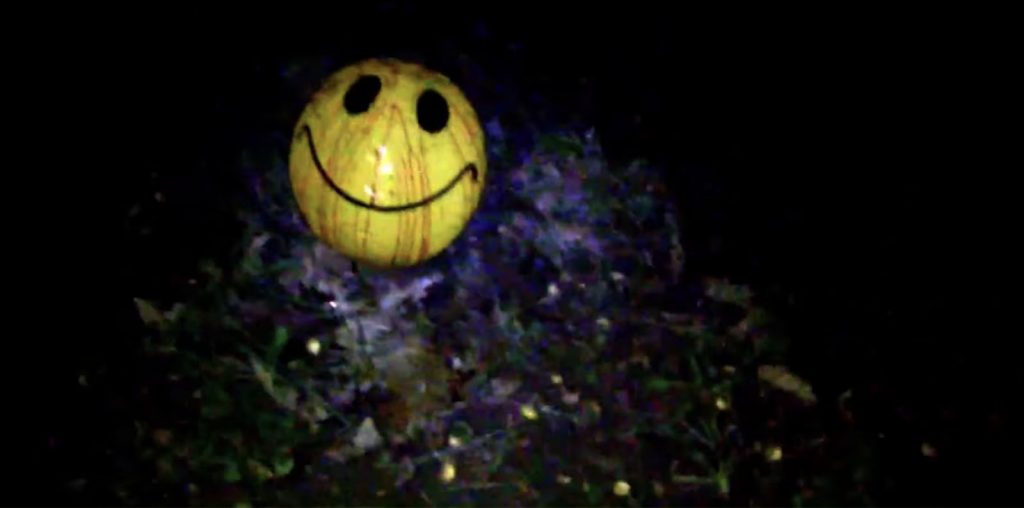
In a delicious bit of poetic justice, “Clerks: Uncensored,” the video and DVD release of the extremely short-lived 2000 ABC animated series based on Kevin Smith’s cult classic “Clerks” hit stores in mid-February, smack-dab in a TV sweeps period — thus in essence getting the big, high-profile bow the network denied it. New series conspicuously pulled from regular season berths and then dumped in the summer typically are trash deserving of a quick and painless (at least to the network, not the viewers) burn-off. But as seen in “Clerks: Uncensored,” the show definitely had at the very least one quality that set it apart from most series cluttering network airwaves these days: genuine promise.
That promise, it must be noted, was only fully realized in one of the show’s six produced episodes (of which only two ever saw air): the second. Near-“Simpsons”-level moments of subversive brilliance are reached in this pointed parody of those lazy sitcom “clip” episodes where the characters reminisce about times (read: episodes) past. As long-suffering convenience store clerk Dante (voiced by Brian O’Halloran) and smartass video store clerk Randal (Jeff Anderson) are locked in a freezer with “merry mischief makers” (as defined in this series) Jay (Jason Mewes) and Silent Bob (Smith) they proceed to recount memorable events from their lives–one of the big jokes being that a number of said events derive from the only episode that came before.
A number of other inspired ideas are spread throughout the other five episodes of “Clerks: The Cartoon,” if unevenly so. Of the six, episodes two, five, and six are the best. The fifth episode centers on Dante coaching a Bad News Bears-ish little league team, with the story then somehow veering off into wild territory inspired by “The Last Starfighter” and, quite hilariously, “Indiana Jones and the Temple of Doom”; and the sixth episode amusingly evokes the spirit of the original film by keeping Dante and Randal in the store as a number of extraordinary events take place just outside. The weaker segments do have their moments, though. The pilot episode is a bit heavy on set-up, but it does give each member of the voice cast (which also includes Alec Baldwin as villainous businessman Leonardo Leonardo) a moment to shine; the “Outbreak”-based third episode takes some choice potshots at Quentin Tarantino; and the largely dull fourth episode (which was the first of the two episodes that actually saw air), a courtroom comedy featuring guest appearances by a number of NBA stars, ends with an amusing riff on the hyperactive visuals of Japanese anime.
Even though the series wasn’t exactly acclaimed during its abbreviated life and is now a long-forgotten oddity in the “Survivor”-crazy minds of most television viewers, as with all DVD editions of his productions, Smith has offered a wealth of extras for this two-disc set. A commentary track featuring Smith, O’Halloran, Anderson, supervising director Chris Bailey, and executive producers Scott Mosier and Dave Mandel runs through all six episodes, and while a scene-specific comment sneaks in here and there, it’s less a discussion of the actual episodes than a more general one about the makings of the show and its ultimate fate. As always, Smith is very candid about the problems with various network honchos and the episodes themselves, and the insight he provides on dealing with TV executives will be of great interest and help to anyone hoping to get a series on network television one day.
Aspiring animators will also get some insight into the development of the series from a visual standpoint. Viewers have the option of watching every episode in animatic form, which are a mix of rough animation and storyboards cut together to the finished soundtrack. There are also two featurettes that delve into the development of the series’ unique art style: a fairly short one on the general color and visual scheme, and a ten-minute one tracing the development of looks for the main characters.
Other extras are a bit on the throwaway side. ABC’s Super Bowl spot, which Smith and the crew trash on the commentaries, is included here for your own private mocking; more effective–and profane–is a trailer that was used to promote the show on the film festival circuit. Finally, Mewes and Smith provide on-camera intros to each episode in character as Jay and Silent Bob. The idea of these segments are a lot funnier than the actually are. Nonetheless, on the whole Smith has again rewarded his faithful fan following with a superior DVD presentation of his work–and made a generally worthwhile disc whose merits would be far from lost on unfamiliar viewers.
Specifications: 1.33:1 full frame; English Dolby Surround; English subtitles; English closed captioning; DVD-ROM features. (Miramax Home Entertainment)
